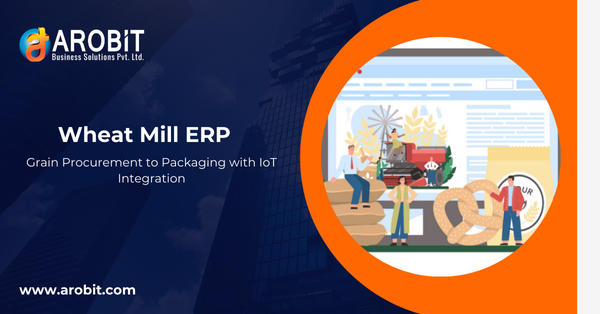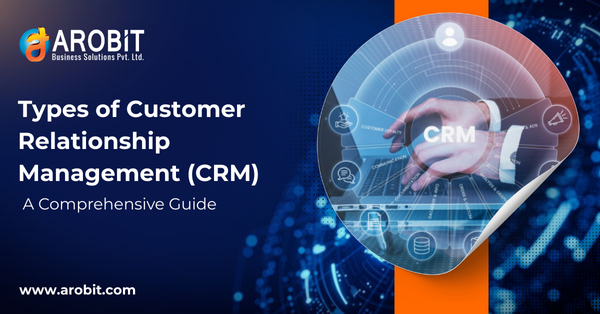In the mainstream business part, inventory management is one of the key functions for success. When a retailer runs out of stock of frequently in-demand items, frustrated customers never mean sales; there is a certain other sense of it—or a warehouse stuffed packed with excess merchandise, tying up cash flow and increasing storage costs. These are a couple of situations laying down what is the reason for having sound inventory stock management systems in place. Enterprise Resource Planning (ERP) systems play a pivotal part in managing a variety of business processes. At the center of these systems lies the inventory module in ERP.
According to a thoroughly recent industry study, organizations efficiently implementing robust material management in ERPs are projected to enjoy a whopping 25% fall in inventory costs, along with a ton of 15% greater fill rate by 2025. This forces the matter of assimilating the ERP modules towards operating the business to drive profitability. This blog explores all the intricacies related to the inventory module in ERP, its key features, benefits, and much more.
What is the Inventory Module in ERP?
The inventory module within the ERP is a software module that is aimed at the management and optimization of the inventory levels and associated costs of a company. It acts as part of the full ERP system, being tightly integrated with finance, order management, and warehouse management modules. This integration allows for the pooling of inventory data across several locations while providing real-time visibility of stock through incoming shipments and customer demand.
If one could go so far as to call it the central nervous system for your inventory, it connects a lot of different functions of the business so that they work in concert. For example, in manufacturing ERP modules, the inventory module ensures that raw materials, work-in-progress, and finished goods are accounted for so the production schedule can match the inventory level.
Key Features of the Inventory Module in ERP
An ERP inventory management module is wealthy in its design to improve efficiency in the inventory processes and better decision-making. Here are some notable elements of the module:
- Tracking inventory in real-time: Allowing total visibility of inventory across multiple locations, warehouses, stores, and in transit.
- Stock-level optimization: Performs analysis of demand patterns to avoid both stock overages and stockouts.
- Automated order-processing duties: Automating purchase order creation and hence managing the procurement cycle.
- Carry out warehouse management: Efficient running of the warehouse with batch tracking, serial number management, and location management capabilities.
- Supply-chain collaboration: Interfaces with suppliers and vendors for smooth communication and collaboration.
- Demand forecasting: Future demand forecasting relies on past figures and predictive analytics for better planning.
- Reporting and analytics: It provides reports on critical metrics of inventory performance based on how inventory is performing and how to make improvements.
Benefits of Using the Inventory Module in ERP
Implementing an inventory management module within an ERP system can bring numerous benefits to your organization. Some of the most significant benefits are the following:
- Increased inventory accuracy: Real-time data synchronization guarantees that inventory records are kept current and accurate, thereby preventing errors and discrepancies.
- Reduced operational cost: Automating inventory tasks like reordering and cycle counting can save tons on labor costs.
- Better forecasting of demand: More accurate demand forecasting occurs through advanced analytics and reporting tools, resulting in optimized inventory levels that help prevent waste.
- Seamless multi-channel inventory control: A common view of inventory across all sales channels—eCommerce, retail, and wholesale—ensuring consistent product availability and customer satisfaction.
- Faster processing of orders: With real-time inventory tracking and optimized replenishment processes, orders can be processed, fulfilled, and shipped faster and more efficiently.
- Greater profit margin: An inventory module reduces costs to increase the efficiency and satisfaction of your customers, making a good impact on your profit margin.
- Advanced data security: ERP systems are usually secure and backed up on the cloud, while customer data access can be monitored and controlled with great ease.
Inventory Module in ERP vs. Standalone Inventory Management Software
While standalone inventory management software can be useful, it often lacks an ERP-based inventory module's comprehensive integration and scalability. Here's a quick comparison:
Feature
ERP Inventory Module
Standalone Inventory Management Software
Integration
Seamlessly integrates with other ERP modules like finance, sales, and manufacturing.
May require custom integrations with other systems, which can be complex and costly.
Scalability
Easily adapts to business growth and evolving needs.
May have limitations in terms of scalability and functionality.
Cost-Effectiveness
Can be more cost-effective in the long run due to its integrated nature.
May require additional investments in integration and maintenance.
Real-Time Data
Provides real-time data across all business functions.
May have data silos and delays in data synchronization.
How to Choose the Right ERP with an Advanced Inventory Module
Selecting the right ERP system with an advanced inventory module is a huge decision that can significantly impact one sizable business. The following are some pointers to ensure that the right system is selected:
- The business size and the industry requirements: Choose an ERP system that is designed for the particular needs of a respective business size. For example, modules related to manufacturing should incorporate features such as material requirements planning and bill of materials invoicing.
- Cloud-based versus on-premise: Decide between a cloud-based or on-premise ERP system, depending on your IT infrastructure and security needs.
- Customizability and integration ability: Make sure the ERP system allows for customization specific to your business process and integrates well with the different systems reflective in your organization.
- User-friendly: Choose an ERP system that is highly user-friendly and easy enough that your employees will quickly be up to speed using it.
- Vendor reputation and support: Choose a good ERP vendor with a strong reputation and good customer support.
Many ERP companies in India provide solutions tailored to their consumers. While searching for ERP software developers in India or an ERP software development company in India, look at the background, expertise, and client feedback. If your organization requires specific financial management features, ensure the ERP system has a solid finance module. You can also think about looking for ready and custom ERP software to achieve very customized requirements.
FAQs
Q1: What is the inventory module for ERP?
A1: The inventory module for ERP is a software unit that tracks, manages, and optimizes a company's inventory and associated costs, also interacting with the other ERP modules for smooth data flow.
Q2: What is an inventory module?
A2: An inventory module is a tool in the ERP that can handle the tracking of stock, provide real-time visibility, and thus help with stock optimization.
Q3: What are the four types of inventory?
A3: While the breakdown of the inventory types may vary, some common forms take the following four:
- Raw materials: These are the fundamental inputs that are used in the production process.
- Work-in-progress (WIP) inventory: Goods that are at the moment under manufacture but not yet fully processed.
- Finished goods: These are completed products with ready access to their sales.
- Maintenance, repair, and operating (MRO) supplies: These are items that are used for lubrication, support equipment, and maintenance of the equipment or the facilities.
Conclusion
The inventory module in ERP is a powerful weapon in the arsenal of any management that, if done right, can tremendously change the business by streamlining inventory processes, reducing costs of operations, and thereby bettering customer satisfaction. The supply chain module provides real-time visibility, automates critical tasks, and allows for better decision-making. Businesses can utilize this to tune the inventory stock-management system according to their most urgent goals and, therefore, achieve them. Spending on ERP systems, especially those having an advanced inventory module, is one big strategic decision that can pay rather high dividends, no matter if you are a small-sized or a large-sized enterprise.








